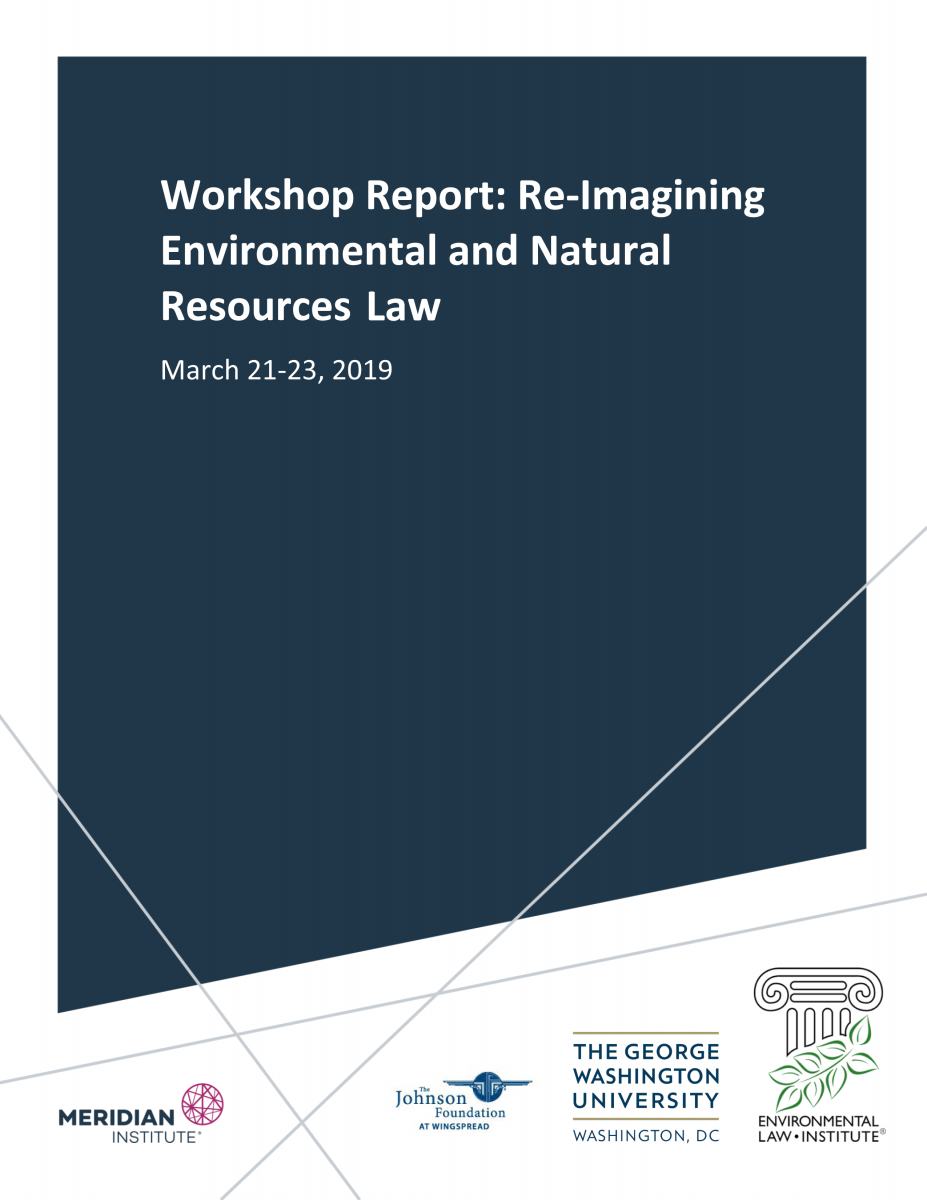Reimagining Environmental Law

The year 2019 marked the 50th anniversary of the National Environmental Policy Act (NEPA), the Environmental Law Institute (ELI), and the environmental law program at George Washington University School of Law (GWU). In honor of these anniversaries, GWU and ELI set out to re‐imagine environmental and natural resources law for the next 50 years in collaboration with leading environmental legal thinkers. This collaboration has taken place at two in‐person meetings: the first at The Johnson Foundation’s Wingspread Conference Center in Racine, Wisconsin, in March 2019, and the second at Airlie House Conference Center in Warrenton, Virginia, in November 2019. Meridian Institute provided facilitation support for both events.
Both meetings included presentations, plenary discussions, and small group discussions focused on opportunities to address climate change, the circular economy, uncontrolled pollution, ecosystem degradation, and the distribution of environmental benefits and burdens. Though all discussions included recognition of the broad international context, the meeting focused primarily on environmental and natural resources law in the United States. The goal of the meetings was not to reach consensus on solutions, but rather to bring new ideas to the table, connect leaders in the field, and lay the foundation for future conversations and gatherings. An initial report summarizing the context for, outcomes of, and next steps emerging from the 1.5‐day November meeting at Airlie House is available for download here.
Following the meetings, we continued to consider the notions generated through these dialogues at policy convenings and in the research department of the Institute, leading to production of a report, Reimagining Environmental and Natural Resources Law: A Synthesis Report Exploring the Next 50 Years of Environmental Law. As with or discussions, the report, center on several key areas of challenge in the human/environment interface, including: climate change and decarbonization, nonpoint sources of water pollution, materials conservation and reuse, and ecosystem degradation and biodiversity loss. In addition, environmental justice was seen as an area of needed focus alone as well as a point of attention that cuts across all of the other challenges. Progress in these areas will require law and policy changes at all levels of government, as well as accompanying economic, political, and social changes.
A number of meeting-related materials from the March 2019 workshop are also available for download:
- Workshop Report: Re-Imagining Environmental & Natural Resources Law
- Appendix A: List of Participants
- Appendix B: Meeting Agenda
- Appendix C: Lessons Learned from Re-Imagining Australian Environmental Law (Prof. Rob Fowler PPT)
- Appendix D: Some Key Environmental Trends (Jessica Hellman PPT) (forthcoming)
- Appendix E: A New Environmentalism: The Need for a Total Strategy for Environmental Protection (Scott Fulton PPT)
- Appendix F: Ecosystem Degradation Transition Gaps Analysis
- Appendix G: Non-point Source Transition Thought Matrix
- Appendix H: Climate Impacts Matrix
For additional information, contact John Pendergrass, Vice President, Programs & Publications